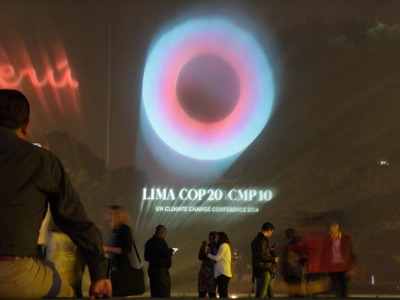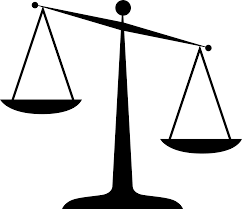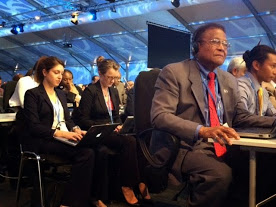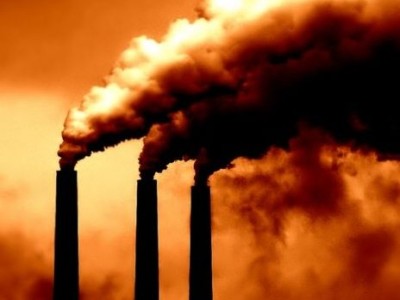An Administrative Overreach?
The White House has proposed new guidelines on how to treat greenhouse gas emissions in environmental impact statements. Basically, the document recommends a quantitative analysis of carbon emissions whenever emissions exceed 25,000 tons per year. The proposal goes beyond a previous one in targeting resource projects such as coal mines as well as direct emissions. Last year, 33 Republican Senators released a letter warning against this step, arguing that it expan...
CONTINUE READINGCan We Control Climate Change and Still Have Economic Growth? (Part II)
It's all in the timing.
Yesterday's post discussed economic growth and how it relates in principle to carbon emissions. Basically, economic growth just means that people will be getting goods and services they prefer over today's goods and service. There's no intrinsic reason why the "better" bundle necessarily has to involve more carbon. In fact, it could involve a lot less carbon. But getting there requires either reducing the carbon intensity of energy production, the energy intens...
CONTINUE READINGLooking Back at COP20: How Should We Feel?
The Lima Accord lets countries name their own price to address climate change. But that doesn't mean it failed.
As you've probably heard by now, this year's UN climate change conference has produced an agreement, the "Lima Accord." The Accord invites each of the nearly 200 negotiating countries to develop an "intended nationally determined contribution" (INDC) to reduce its GHG emissions. INDCs represent some step forward from each country--in the words of the Accord, "a progression beyond the current undertaking of that Party." But what any particular INDC will look like remain...
CONTINUE READINGCan We Control Climate Change and Still Have Economic Growth? (Part I)
What do we mean by "economic growth"? Does it always mean more carbon?
The Washington Post recently had a column arguing that even climate advocates and scientists are in denial, for thinking that we can have economic growth and still fight climate change. is that true? It's useful to take some time to think through what we mean by economic growth and how that relates to carbon emissions. Economists talk about economic growth in terms of changes in real GDP, and there are a lot of complications in making those calculations. But wh...
CONTINUE READINGGiving Indigenous Peoples a Voice at COP20
Observations from the Lima UN Climate Conference - by Sarah Kozal
This post is by Sarah Kozal, UCLA School of Law Class of 2016, who participated in the Lima COP last week as part of UCLA’s delegation. One surprise of COP20 has been the large presence of indigenous peoples’ issues and voices. In particular, many of the side events at the conference have focused not only on the environmental concerns of indigenous communities, but also on how indigenous communities can help monitor and mitigate environmental changes. Indigenous c...
CONTINUE READINGThe environment and marijuana legalization
In the wake of the successful marijuana legalization efforts in Colorado and Washington state, and the success of a number of legalization initiatives on the ballot in the prior mid-term elections, there is a renewed effort to get a legalization measure on the ballot here in California for the 2016 elections. A prior measure in 2010 lost. As a policy matter, I’m in favor of legalization with appropriate regulatory protections for public health and safety. I think a ...
CONTINUE READINGThe Disturbing Legal Influence of the Fossil Fuel Industry
Coal and oil have found legal spokesmen in state houses and law schools.
The NY Times has a disturbing story this morning about the secret alliance between some state attorney generals and the fossil fuel industry. Perhaps the most shocking is an example in which the Attorney General of Oklahoma had a draft by a coal company retyped on letterhead and submitted as his own opinion. The industry has rewarded its friends with campaign contributions and other forms of support. The views of one former Republican attorney general are telling:...
CONTINUE READINGProgress at the UN?
A view from the Lima climate COP
The annual Conference of Parties of the UN Framework Convention on Climate Change opened this week in Lima, Peru, drawing delegates from around the world, including a few from UCLA Law. I am in Lima along with Legal Planet blogger Jesse Lueders and three students from our UCLA Environmental Law Clinic, Sarah Kozal ’16, Jacob Cohen ’15, and Sunny Tsou ’15. We are here with clinic client Islands First, a nonprofit that provides support to small island developing ...
CONTINUE READINGLocal Planning For Solar Energy — Berkeley Law Webinar
Free event on December 11th, 10-11am, features the Governor's Office of Planning and Research
The webinars keep coming! Berkeley Law is hosting another free webinar next week on best practices for integrating integrating small- and medium-scale solar energy policies into local general plans. Joining us once again will be Chris Calfee from the Governor's Office of Planning and Research (OPR), who will provide the latest on the general plan guidelines update process. The free, web-based event will take place on Dec. 11th (next Thursday) from 10 to 11am. It will ...
CONTINUE READINGOur Air is a Lot Cleaner and Prospects for Climate Action a Lot Brighter Thanks to Citizen Suits
Climate change, ozone and mercury rules all the result of citizen suits
Three sets of Obama Administration's environmental rules are in the news these days: those on climate change, mercury and ozone. The President is being praised among environmentalists for his ambitious actions and lambasted by some business and Republican leaders for engaging in a "war on coal." Yet lost among the clamor is one key fact: without the citizen suit provision of the Clean Air Act, which allows "any person" to sue the Administrator of the EPA for fai...
CONTINUE READING










